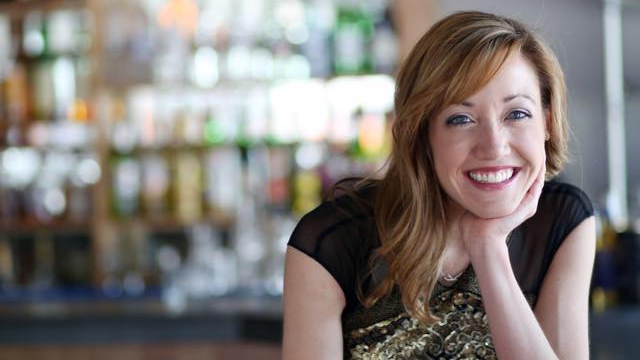So you want to launch a career in food media, but you haven’t heard back after a single job application. Or maybe you think your sociology degree won’t get you past the hiring manager’s desk even though your food Instagram just hit 50,000 followers.
Either way, your friends tell you print is dead and you should get on with your life.
But before your fears force you to forgo that childhood dream of creating a cookbook, take note of these tips from seasoned food writers whose unconventional careers lead them to write real, live, culinary books in our ever-evolving digital society.
First, find your niche.
“There are so many people out there who deserve to do a cookbook,” says food writer JJ Goode. But if you ask him, he wouldn’t make his own list.
“I’m from New Jersey,” he explains. “I grew up liking food a lot, but like really trashy food.” Frozen pizza, instant macaroni and cheese, and chicken nuggets peaked the palate of the future food critic at a young age.
“It wasn’t a very romantic start,” he says. “I never went to culinary school, I never worked in a restaurant and I’m a little bit clueless in the kitchen.” So after working on 12 cookbooks with several authors, Goode finds he is exactly what certain chefs need: an advocate for the home cook.
“Chefs cook so instinctually, they sometimes forget things like, you know, measurements, temperature settings—the stuff us mortals find useful,” says Kerry Diamond, editorial director of Cherry Bombe magazine.
While the first of her two-book deal with Clarkson Potter is set to be published next year, Diamond never planned to make food her full-time focus. She started dating a chef who asked if she would open a restaurant with him.
“That was my gateway drug,” she says of finding her foundation in food.
Sarah Black, the author of One Dough, Ten Breads, shares similar romantic sentiments when it comes to finding your fit.
“It is like falling in love, I think—hard to put into words—you just know when it’s right for you,” Black says. “‘Use your instincts. ‘You know more than you realize’ is my mantra.”
Love to write? Find a great new job as a writer on Mediabistro’s job board.
Then write what you know.
Like all writing, it’s a lot easier to let it flow when you’re familiar with the subject. Black suggests finding your niche, learning everything you can, then writing from the heart.
“Baking changed my life. I wanted to give this opportunity to others who might be struggling to find their way—by inspiring, teaching and training how two hands can change the world,” she says.
Starting with an authentic story will make a book proposal feel more like meeting a new friend than an application to become an author.
“Publishers like to see the chefs voice on the page,” says Goode. “I think a cookbook should be really personal. You want to read it and feel like you’re at the stove with the chef.”
Share your work online.
Diana Yen is the brilliant brain behind the multidisciplinary creative studio The Jewels of New York and author of A Simple Feast, but many know her from her perfectly styled Instagram account.
“[Social media] connected me to people I wouldn’t have otherwise met and it led to lots of new business opportunities,” says Yen. “I was lucky enough to find a smaller publisher, Roost Books. It’s a family run business and the president was a fan of my site.”
She suggests trying to do everything yourself at the beginning to grow your individual talents, then share your creations online and get feedback from the community. This can also be a way to pick up media coverage.
“I think my business, online blog and press definitely helped in setting me apart and getting my book published,” Yen says.
Network as often as you Instagram.
It’s easier than ever to introduce yourself to industry leaders because of the Internet, yet even virtually it can often feel intimidating.
Go ahead and “politely bother people,” says Goode.
“No one’s that cool in food,” he says. “It’s not fashion or sports writing. There’s nobody too cool for school…except for a few people.”
When Goode was looking to make the move from his entry-level position at Epicurious, he sent out cold emails to food writers like current New York Times restaurant critic Pete Wells and Food52 co-founder Amanda Hesser.
“They didn’t know me. They had no reason to respond to me,” says Goode. Yet almost everyone responded and agreed to meet him.
“There was nothing they could do really. They couldn’t just give me work, but I stayed in touch with a lot of these people.”
Goode found that these contacts would think of him for opportunities such as a quick 250-word essay or even when looking to fill a new position.
“Write to people. Buy them coffee. Bother them on the phone. Be persistent,” Goode advises.
But even when trying to get a foot in the door, the rules of etiquette still apply, warns Yen.
“The biggest turn off for me is when strangers ask to ‘pick my brain,’” she says. Initially offering something mutually beneficial to a mentor can go a long way.
“Reach out in a professional [manner] through email and offer your assistance, even if they don’t need it. There’s a big chance they will open the door and share some knowledge,” Yen says.
Start right now, where you are.
“It was really hard in the beginning when you’re starting out and the only thing on your resume is ‘proficient in Microsoft Word’ or something like that,” Goode remembers.
He says even relatively inexperienced writers should approach their favorite chef to build a relationship.
“The chef isn’t thinking ‘Oh he’s a good writer, not a great writer.’ No, the chef is thinking ‘Could I spend a year talking to and meeting with this person? Is that going to drive me crazy or that going to be okay?’” he says of his own experience.
Once you have an idea, Goode says to try your hand at writing a proposal. He suggests asking around to find examples of book proposals to glean inspiration to go forth on your own.
“One cool thing about cookbooks is it’s still kind of like the ‘Wild Wild West,’” says Goode. “I didn’t know someone who wasn’t a great cook could even do cookbooks.”
Traditional training in food media is still sparse, but Yen says it’s wise to become active in the community by showing up to lectures, food fairs, and pop-up dinners.
“Try interning at your favorite companies, publications or shadow a stylist. Learn to recognize your inner talents and continue in that direction,” she says.
Keep refining your craft.
In any creative industry, it takes a lot to stand out among the competition.
“I think a curious mind is never content,” says Yen. “I’m always trying to devour inspiration through social media, books, and engaging in conversations about the ever-changing food world. I go through periods where I simply absorb information, and once I’m full, I go and create something new from it.”
Food writing, like cooking and baking, takes practice. Black tests her recipes at least 25 times. Goode studies his subjects in-depth enough to mimic their speech patterns. Yen rents apartments in foreign countries to cook up a feast using their local ingredients.
But like perfecting a recipe that’s been years in the making, it is often followed by a sweet reward.
“It’s the best, it’s really the best,” Goode says about co-authoring with chefs. “I get to basically learn, watch them cook, eat their food, and ask all these dumb questions. But I feel like I’m doing something important.”
And never give up on print.
Even though BuzzFeed Food videos may dominate your Facebook feed, these authors are confident the cookbook will survive the digital age.
“The craft of baking is all about touch, and holding a book, staining its pages with sticky fingers, marking a book as you work with it is a ritual that also involves your senses,” Black says of a cookbook’s place on the shelf.
“I think cookbooks will be around forever. It’s like any book,” says Goode. “Do you think they’re going to stop making novels or histories of old white former presidents? There’s like 20,000 books on Thomas Jefferson and John Adams, so there can be more cookbooks in the world.”









